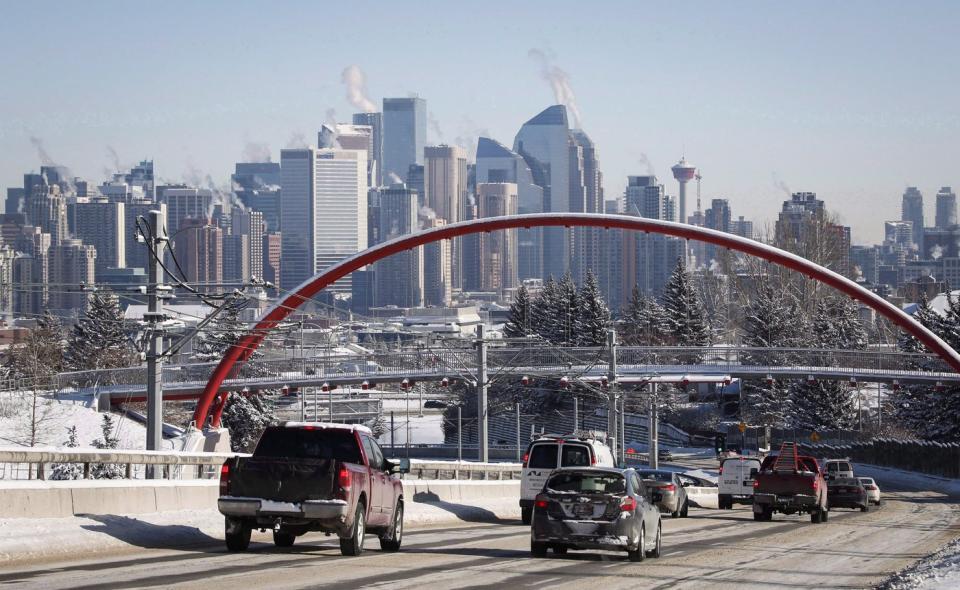More auto insurers could exit Alberta without system reforms: DBRS

CALGARY — As Alberta considers an overhaul of its troubled auto insurance system, a global credit rating agency is warning a "clear long-term solution" must be found or more insurers will depart the province.
Sonnet Insurance Company and Aviva subsidiary S&Y both recently announced plans to phase out their auto insurance businesses in Alberta, citing claim costs that exceed premiums collected as well as a lack of opportunity to grow profits.
In a new report this week, credit rating agency DBRS Morningstar warned other insurers could also be eyeing the exit doors.
"We believe that others may follow," DBRS Morningstar said.
"Even those who do not have plans to withdraw from the market per se may be implementing cost savings measures that are reducing the accessibility and availability of auto insurance (in Alberta)."
After years of spiraling costs and rising premiums, problems within the Western province's auto insurance system appear to be coming to a head.
Justin Brattinga, press secretary to Alberta Finance Minister Nate Horner, said while the government is not aware of any other insurers planning to leave the province, it recognizes Albertans are struggling with premiums. He said the government also acknowledges the industry’s concerns about increasing cost pressures.
"This is why we are working on long-term reforms to make sure Albertans have access to affordable insurance and to stabilize and sustain the auto insurance industry," Brattinga said in an email.
While auto insurers in all provinces are dealing with rising costs due to factors like increased car theft and the rising cost of vehicle parts and repairs, Alberta's situation is unique.
Unlike neighbouring provinces B.C., Saskatchewan and Manitoba, — which all have public auto insurance systems — Alberta's is a privately delivered, for-profit model.
Alberta is also one of the few Canadian provinces without a no-fault insurance model. In Alberta's tort-based system, collision victims who have sustained both minor and major injuries are allowed to sue the insurance company of the at-fault driver.
In the more common no-fault insurance model, the courts are generally taken out of the equation. Insurance companies are required to cover the losses of the driver they insure, regardless of who is at fault. Since each driver deals with their own insurer, there is usually no need to sue.
Insurance providers say spiraling liability costs are the main factor straining Alberta's system.
According to the Insurance Bureau of Canada, injury costs (including legal costs and fees) following vehicle accidents jumped 79 per cent in Alberta between the years 2012 and 2022. The average bodily injury claim following an accident in Alberta is now $81,140 — among the highest in Canada.
Alberta drivers already pay among the highest car insurance premiums in Canada, and consumer frustration has led the provincial government to attempt to offer some relief. Under former NDP Premier Rachel Notley, during the period 2015 to 2019, annual premium rate increases in Alberta were capped at five per cent. The cap was eliminated in 2020 only to be re-introduced by the United Conservative government in 2023 in the form of a year-long rate freeze that barred insurers from filing for new rate increases for customers with clean driving records.
But the insurance industry has said if they can't cover mounting costs by hiking premiums, then there's no way to profitably operate in Alberta.
"In any industry, if you cap the price of a product below the cost of delivering that product, it simply isn't sustainable. And that's what we're seeing in Alberta's auto insurance marketplace today," said Aaron Sutherland, IBC's vice-president of Pacific and Western regions.
Sutherland added that if something doesn't change, it will only become more difficult for drivers to access the insurance they need.
"We're unfortunately seeing some carriers withdraw from the market, but we're seeing others that remain restrict the coverages they sell," he said.
A recent government-commissioned report suggested the answer to Alberta's woes could be a move to a public auto insurance system, which the report said could save the province's drivers hundreds of dollars a year in premiums.
But Premier Danielle Smith has said there's little public appetite in Alberta to move to a government-run model.
The insurance industry has proposed a different solution, one where drivers could choose to pay a lower premium by waiving the ability to sue if they sustain a minor injury. Those with serious injuries would continue to have legal recourse after an accident, just like today.
If Alberta were to move to a fully no-fault model, eliminating the right to sue entirely, that would likely decrease the overall average payout policyholders could expect to receive after a collision, Sutherland said.
"But if that's the path the province wants to go down, we're keen to work with them on that to make sure it's delivered quickly and effectively," he said.
In the meantime, overall regulatory uncertainty and reduced profitability will continue to be a drag on earnings for insurers with significant exposure to the Alberta market, DBRS Morningstar warned.
"The province needs to find a long-term solution to its auto insurance crisis or risk further capacity constraints, thereby making it more difficult for Albertans to get adequate coverage at an affordable price," the credit rating agency said.
This report by The Canadian Press was first published July 10, 2024.
Amanda Stephenson, The Canadian Press

 Yahoo Finance
Yahoo Finance 